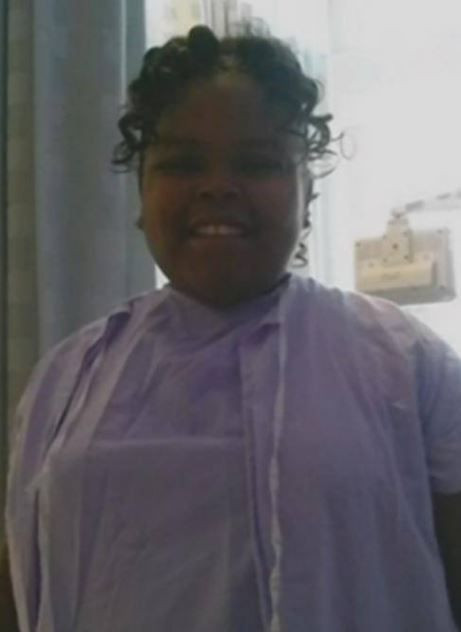Jahi McMath, 13-Year-Old Declared Brain Dead After Routine Surgery, To Be Taken Off Life Support At 5 PM PST On Monday

Jahi McMath, the girl who was declared brain dead after a routine surgery at a California hospital in early December, will be taken off life support at 5 p.m. PST on Monday unless her parents can file a successful court injunction or find a facility that is willing to care for a patient that medical experts say is beyond rescue.
After hearing from a number of physicians from Children’s Hospital Oakland in Oakland, Calif., Alameda County Superior Court Judge Evelio Grillo ruled last week that the facility may disconnect the ventilator that has sustained 13-year-old Jahi’s basic biological functions since a tonsillectomy triggered a menacing chain of adverse cardiovascular events. Experts agree that the young girl is brain dead, and that no treatment or intervention will ever restore her consciousness. Still, the parents remain steadfast in their fight for their daughter, whom they believe to be locked away in the lifeless body that officials say can no longer be moved without serious bureaucratic and ethical complications. “There’s still life there,” Jahi’s parents told reporters from The Los Angeles Times.
"Practically and Legally Dead"
Speaking to CNN, hospital spokesperson Sam Singer said that, while Jahi’s physicians would do anything to bring the young patient back, the somber reality of the situation makes all interventions utterly futile. “No amount of prayer, no amount of hope, no amount of any type of medical procedure will bring her back. ... The medical situation here in this case is that Jahi McMath died several weeks ago," he told reporters. "The court has said at 5 p.m. today that the hospital will be allowed to unplug the ventilator, which is the only thing that is keeping Jahi McMath's heart beating. ... There are no winners in this very tragic case.”
The hospital’s attorneys echoed this sentiment, underscoring the sad fact that Jahi is “practically and legally” dead. "To be blunt, Children's is merely preserving Ms. McMath's body from the natural post-mortem course of events," they wrote. "There is no legal, ethical or moral requirement that it continue to do so or that the family consent in the decision to stop doing so."
With a court injunction all but doomed to fail, Jahi’s parents are now scrambling to find another care center willing to accept their daughter in her current state. However, hospital officials point out that this may prove to be nearly impossible, as the transfer will technically involve a dead body. Even if the parents find another facility, Jahi would require the insertion of tracheostomy and gastrostomy tubes — surgical procedures that, according to the hospital’s chief of pediatrics, does not represent appropriate medical practice when performed on a deceased patient.
"We need to be able to talk to the other facility to understand what it is they are capable of doing,'' spokesperson Cynthia Chiarappa explained. “This is not transferring an individual in a vegetative state, but a dead body.''
A Painful Case
Jahi’s case dovetails with the legal predicament of Erick Munoz, a Texan paramedic whose brain dead and pregnant wife is currently being kept alive in accordance with Texas’ Health and Safety Code Section 166.049 Pregnant Patients. Munoz argues that a Do-Not-Resuscitate order signed by the couple before the incident gives the family the right to terminate life support. However, hospital counsel says this directive is not valid if the patient is pregnant.
Aside from slowly unraveling the lives of the people involved, these cases have also cultivated what medical ethicists call a misperception of life-preserving instruments and their application. According to Arthur Caplan, director of the Division of Medical Ethics at NYU Langone Medical Center in New York City, the fundraisers and interviews surrounding the cases have instilled in the public a sense of false hope that may come to the detriment of similar situations in the future.
"I think these cases have been botched, horribly," he told reporters, adding that it does not make sense to say “life support” when referring to the technology keeping a neurologically dead patient from shutting down. "They're giving the impression that dead people can come back to life."
Published by Medicaldaily.com



























